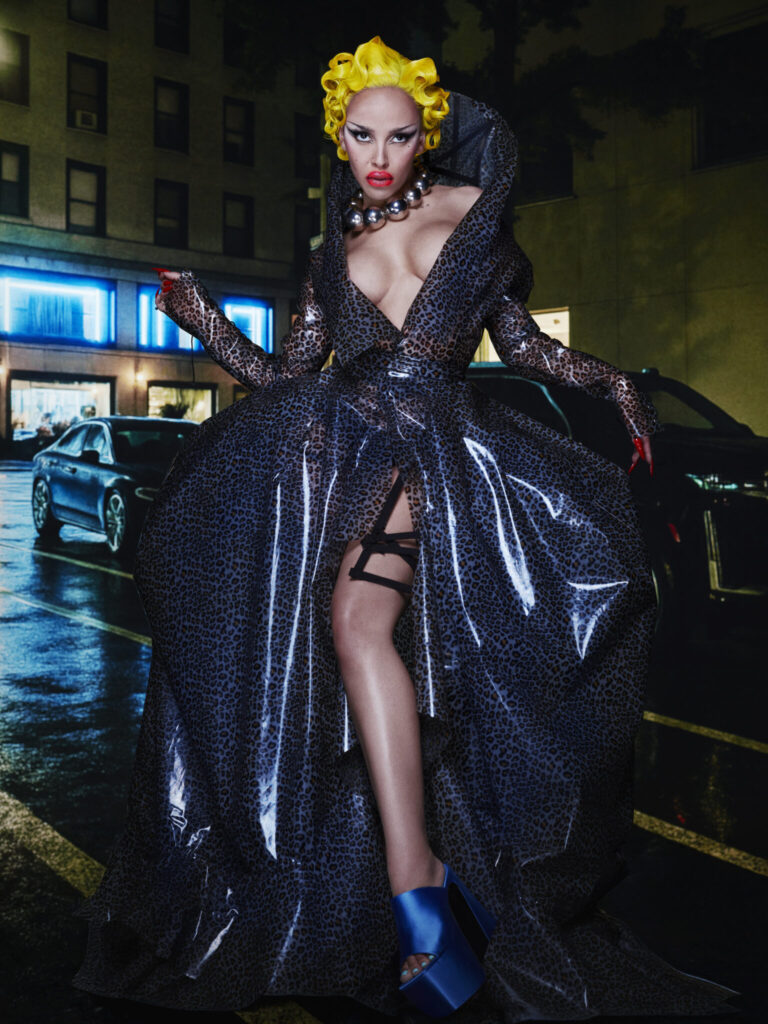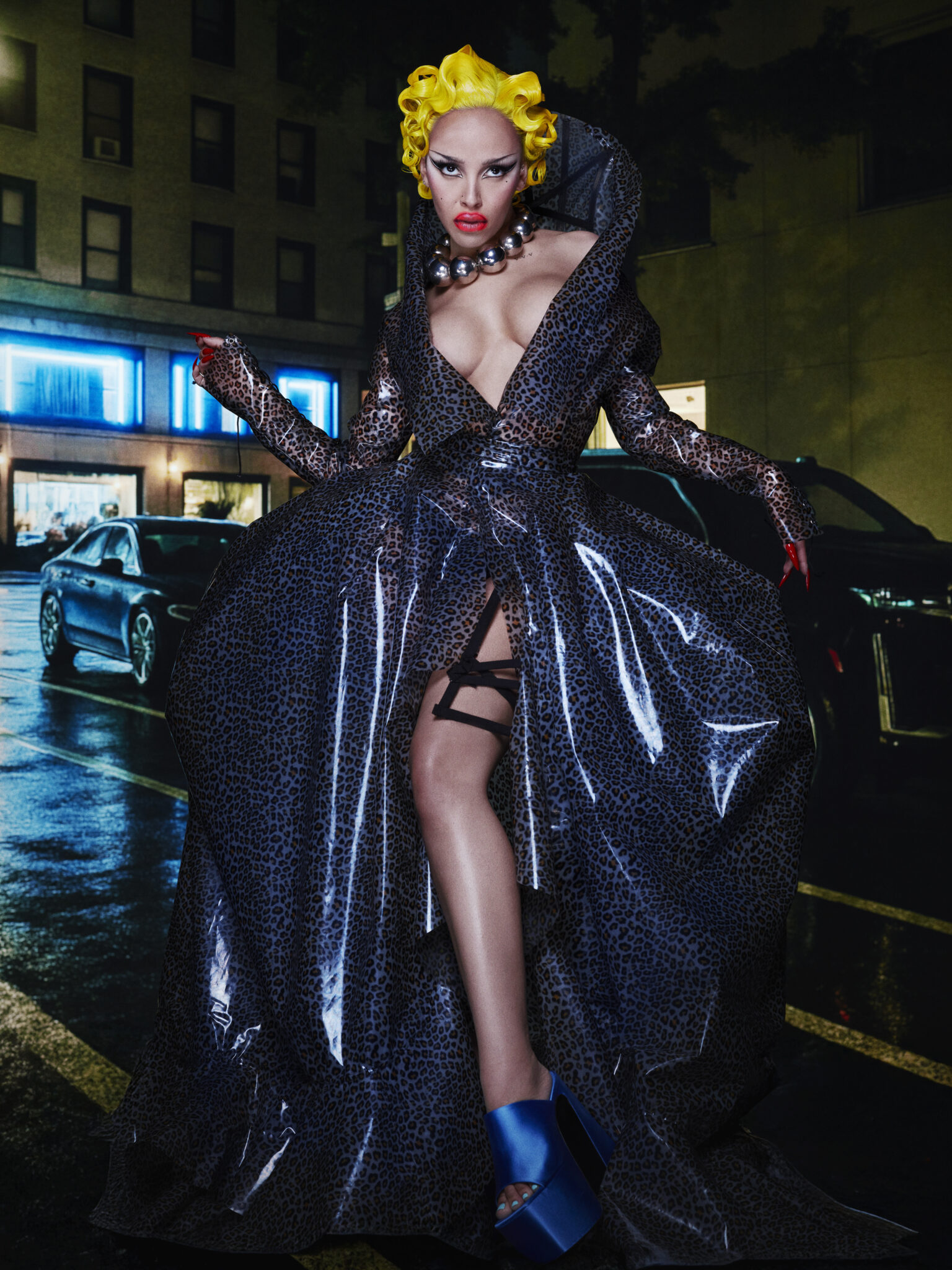In just 29 years, Doja Cat has already lived several lives. Of course, all cats are given nine—a notion originating in either Ancient Egypt or Medieval Europe, where felines were associated with the supernatural and the number 9 was often seen as mystical or somehow lucky. But for Doja, we don’t just mean, for example, her time as Amala Ratna Zandile Dlamini—her birth name—as opposed to her current existence as a pop star. Even within her stardom, which went global during the pandemic, Doja has lived multiple lives—reincarnations marked by a mercurial shift in style, sound, and visuals. Perhaps more than any of her contemporaries, her artistry is impossible to predict; you never know which “life” of hers she will be inhabiting. But it looks like in the near future, it will be one from the past.
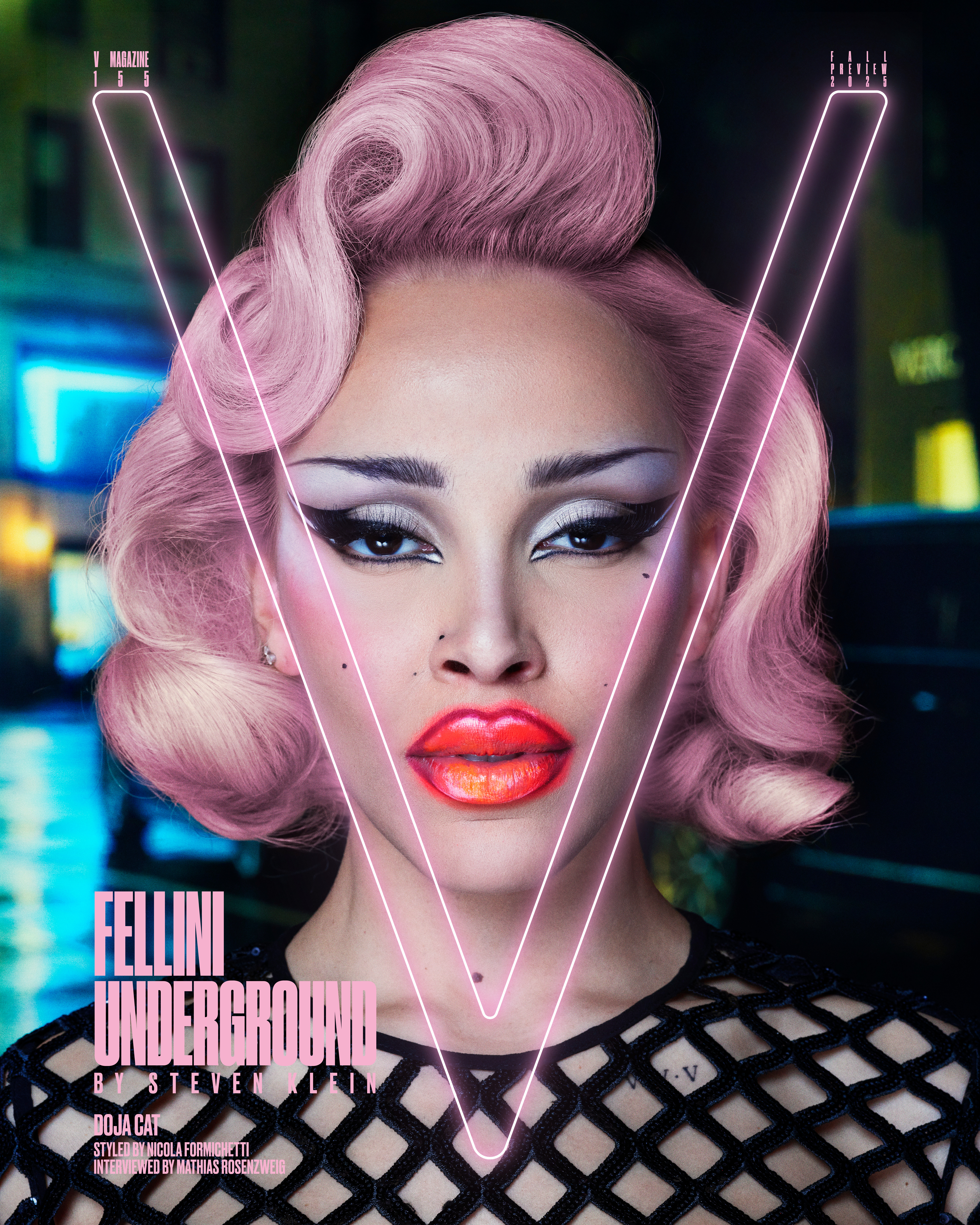
On Eyes PAT MCGRATH LABS Mothership X: Moonlit / Seduction Eye Shadow Palette, Perma / Precision Liquid Eyeliner in Xtreme Black | On Lips PAT MCGRATH LABS PermaGel Ultra Lip / Pencil in Vengeance, Dramatique Mega Lip / Pencil in Obsessed!, Lust: Gloss™ in Blitz Gold
Her forthcoming album Vie (which, of course, means “life” in French) is very much about moving forward by embracing one’s origins. “Where I am creatively right now is based in where I was,” she says on a video call. Sitting in what looks like an office building, the star appears in blond hair and an office-siren type button-down top. “I want to kind of swim back upstream, so to speak, and go back where I was, and just re-trim and evolve everything.”
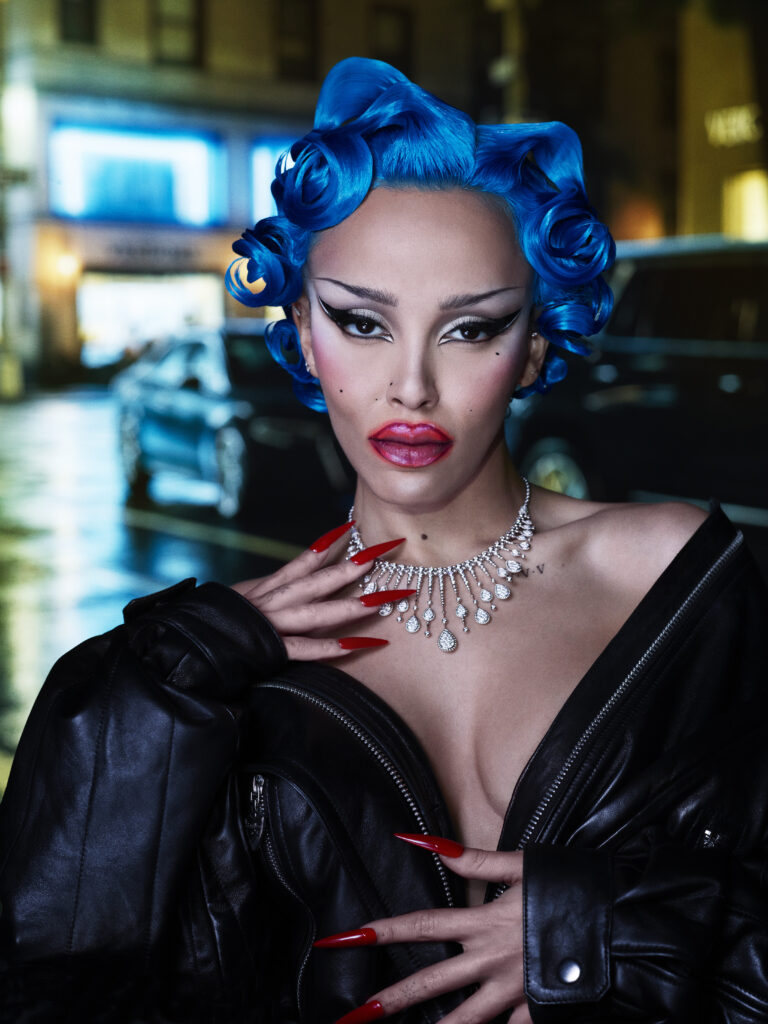
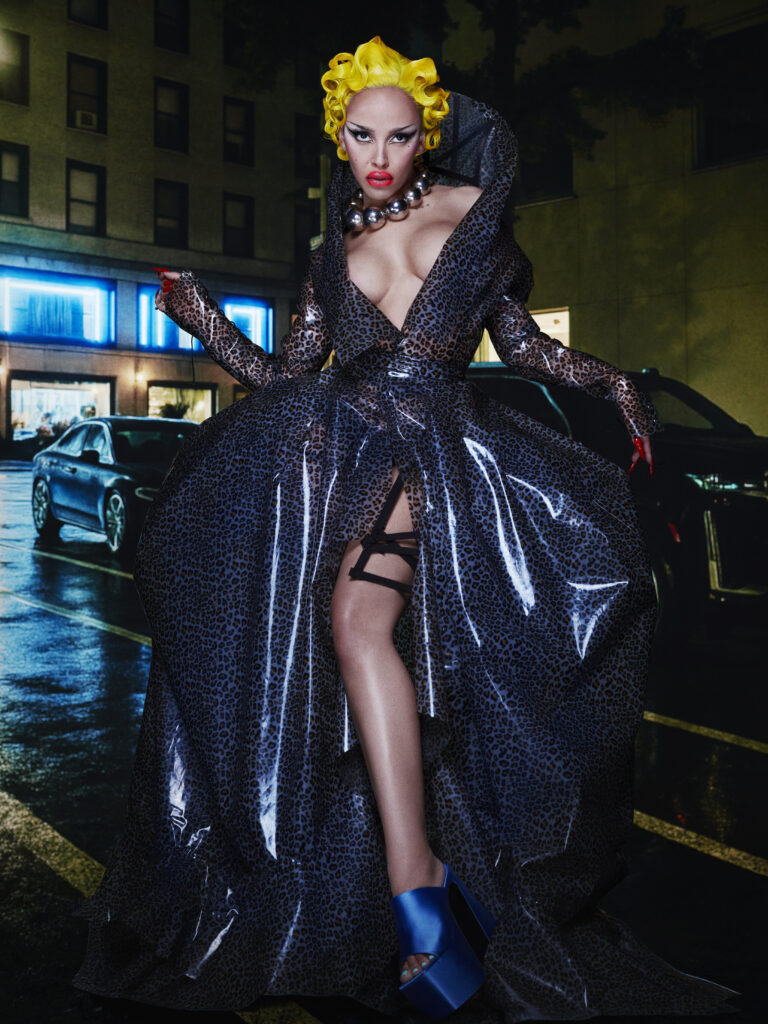
The album is rich with retro textures and synth-drenched soundscapes, a sonic background charged by various influences from 40 years back. “I have so many things that float around in my brain when it comes to the ‘80s,” she says when asked about specific inspirations. “And I also am a ‘95 baby, so I have no experience of the ‘80s or any relation to it in that sense.” That said, she refers to the recent internet trend of liminal space—“a dream world concept, or dream-core,” explaining, “If you look at some of the imagery for dreamcore and liminal space, you see a lot of these office buildings and things that are quite old… And that’s because, when I was a kid, it was in these old buildings where our parents would be working, and they’d take us to work with them, and we’d sit in the ‘fun’ area, where there’s games and toys and things like that, but it still felt quite sad. The fluorescent lights just hurt.”
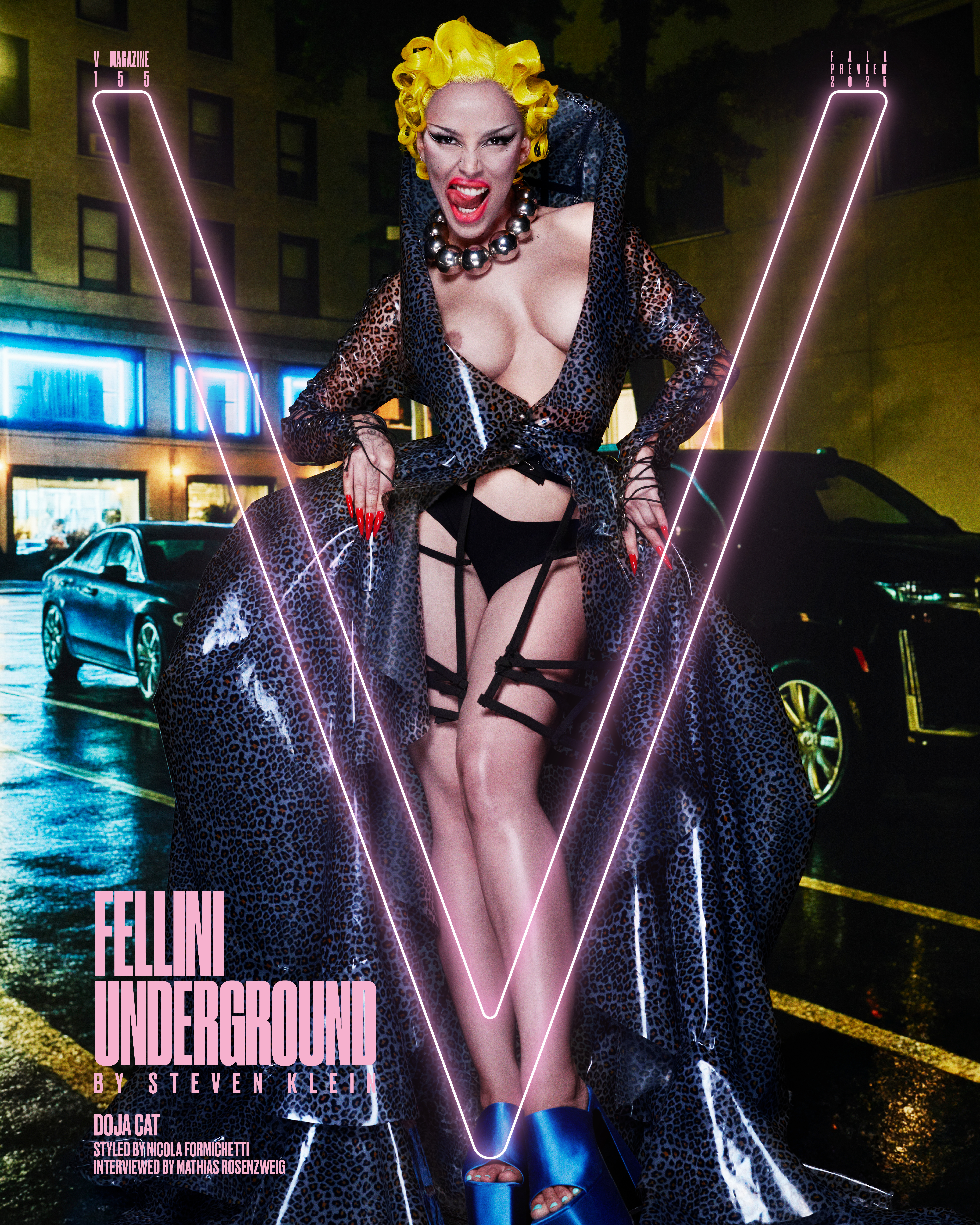
As artists do, Doja is turning something bleak and depressing—the beige, homogenous, almost Eastern Block-feeling office buildings of the ‘70s and ‘80s—into something beautiful, or at least beautified. “There’s something that almost brings me back to a happy place when I see it now,” she says. “I wanted to play with that nostalgia by using these Lo-Fi sounds and samples and things that reminded you of something from your childhood, but it wasn’t on the nose ‘80s.”
Outside of the nostalgic instrumentals, Doja has also been experimenting with her voice. “Sometimes I’m surprised by what I can do now,” she says, “because I could not fucking sing.” That said, in this next life, or “vie,” she continues to rap for much of the album. She adds, “I have a lot more knowledge of how to use my voice as an instrument, more than I ever have in my life.” Perhaps most surprisingly of all in terms of her next reincarnation, Doja is still making pop music—a bit of an about-face from previous Tweets about “no more pop,” where she said, “pop isn’t exciting to me anymore. I dont wanna make it.”
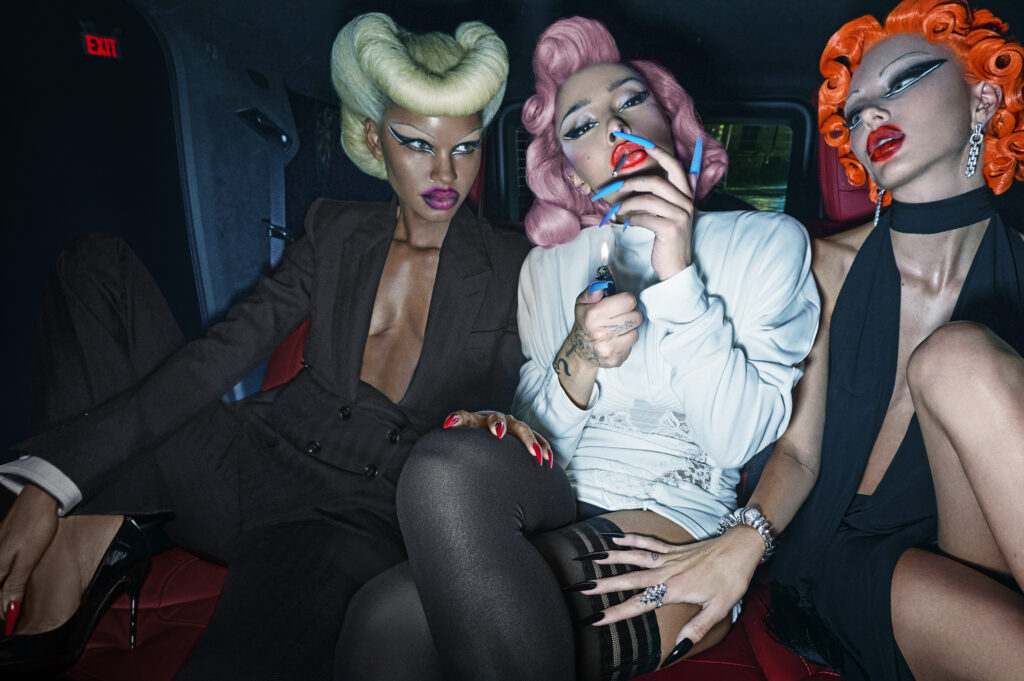
“I do want to be self-aware enough to admit the fact that this is a pop-driven project,” she tells V. “I know that I can make pop music, and pop is just that it’s popular. It starts to become a bit of a thing that’s viewed as a sport by people who are just bystanders to it, who enjoy it, but maybe also don’t respect it or what it is, which is just music. There are some people who don’t see it as music. They see it as if this is some kind of football for girls and gays.”
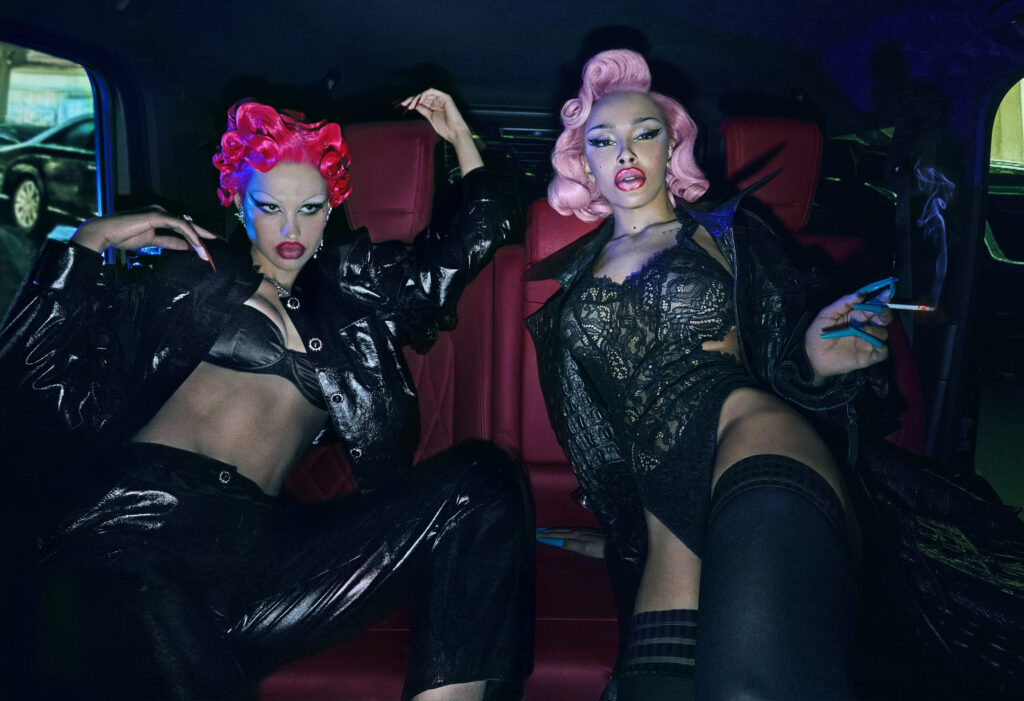
Doja Cat wears coat BALMAIN | Lace bodysuit SAVAGE X FENTY | Stay-ups FALKE
Just as the album’s sound leans into a retro aesthetic, its lyrical focus also echoes the past. “The concept is very pointed towards love, romance, and sex—and discourse in relationships. Really just relationships in general, and relationships with yourself, even,” she explains. But what exactly does that have to do with fargone times? “I think right now, you hear a lot of songs about breakups, and a lot of songs about how we’re just kind of sick of men. I have a song like that on this album. But the thing is, there are so many ways to talk about that feeling—like, ugh, men. This album is very much about love in a way that reflects how I want it to be in the future—my hope, my hopefulness. What I hope it could be. Because I remember there was a time when people were talking about wanting to be with each other, and it seems to have gotten a bit more vapid and just sort of like, not real… not loving, not romantic.”
Being a pop album, there is, of course, a desire for the album to be, well, popular. But Doja is trying to approach it with a zen-like sense of que sera, sera. “What I want to avoid is that little monster that just wants success,” she says. “I want to focus more on: how does the mix sound? Do I even need these instruments here? Do I need to recut this verse? It’s how things sound that makes the music worth listening to. I would not be an artist if I didn’t care, right?” She adds that, “If for any reason a project of mine does a little less good than the last one, I don’t want to be up in arms and upset about it. I want to embrace that.”
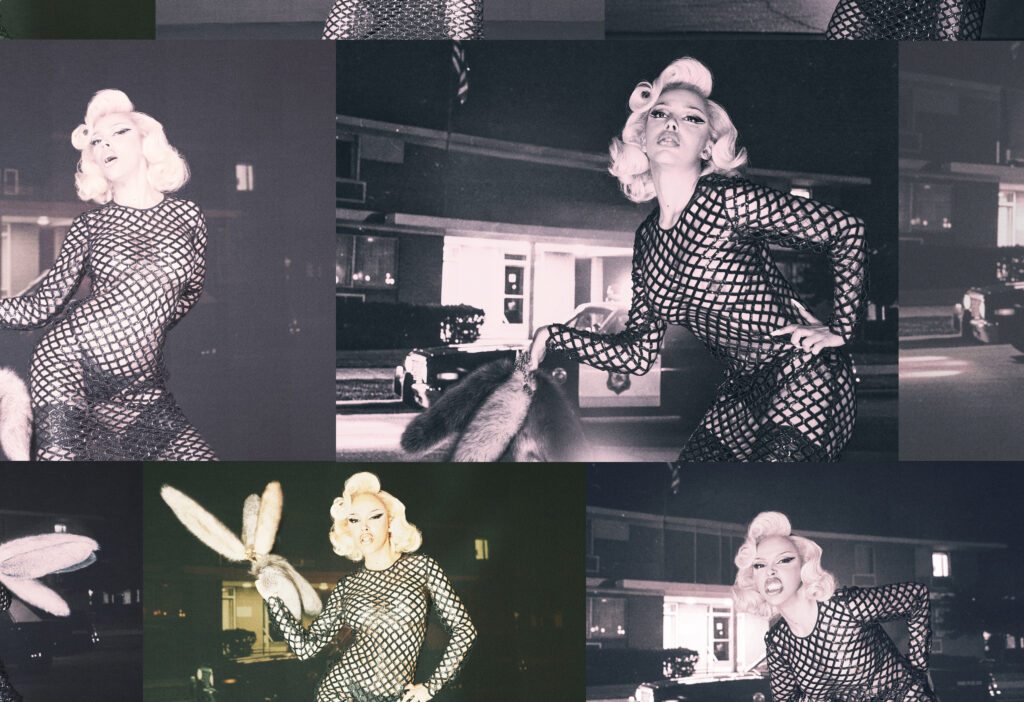
A part of this has to do with focusing on authenticity and quality rather than external opinions. “Spotify doesn’t make the music sound better,” she says. “Apple doesn’t make the music sound better. Billboard doesn’t make the music sound better. The people being like, ‘That’s good,’ doesn’t mean that it’s good.”
It’s a mindset that reflects an artist more focused on meaning than metrics—on creating something that feels good rather than simply charts well. In that way, Vie is less a reinvention than a reclamation: of sound, of spirit, of self. Across the many lives she’s lived—within and beyond her fame—Doja has never followed a straight path, instead zigzagging through personas, aesthetics, and moods with feline agility. This time, though, she’s not just leaping into a new form. She’s folding the past into the present, honoring every version of herself that’s brought her here. Vie isn’t just French for “life.” It’s a reminder that Doja still has many more to live.
From V155 Fall Preview 2025 Issue: now available for purchase!
Photography Steven Klein
Fashion Nicola Formichetti
Creative Director / Editor-in-Chief Stephen Gan
Makeup Design Pat McGrath
Makeup Jenna Kuchera using Pat McGrath Labs
Hair Akki (Art Partner) using Hair Ritual by Sisley
Interviews + Editors Kev Ponce / Mathias Rosenzweig
Manicure for Doja Cat Saccia Livingston
Casting Greg Krelenstein (GK-LD)
Production Ted and Jane
Retouching NoizBlur
Executive Producers L.E. Seydel, Mara Weinstein
Producer Caroline Gluck
Production Designer Jack Flanagan
Location PIER59 Studios / Megaverse Studios™ with Virtual Production
Studio Manager (Steven Klein Studio) Chris McCoy
Photo Assistants Dylan Garcia, Ari Sadok, Rowan Liebrum, John Manuel Gomez, Stiven Lopez, Hunter Sketch
Digital Technician Gregory Wikstrom
Graphic Designer Theo Donen
BTS Evan Rogers
Fashion Associate Nick Gaga
Fashion Assistants Hunter Clem, Arut Arustamyan, Erika Bennett, Angelina Khachaturyan
Tailor Carmen Gee
Makeup Assistants Masako Fuyama, Ryan Burke,
Dmitry Kukushkin, Michelle Coursey, Zane Chen
Hair Assistants Rei Kawauchi, Vanessa Li, Christina Rendall
Art Assistants Karl Moore, George Delacey
Production Coordinator William Manague
Production Assistants Caroline Bates, Tyler DeMauro, Chancey Bridges, Evan Reiter, Jordan Gairey
Photo Interns Natasha Peterson, Hunter Sketch
Special Thanks PIER59 Studios Virtual Production Team
Discover More
